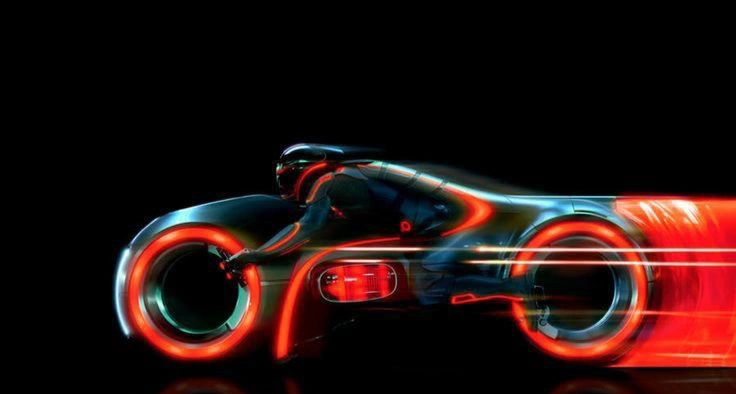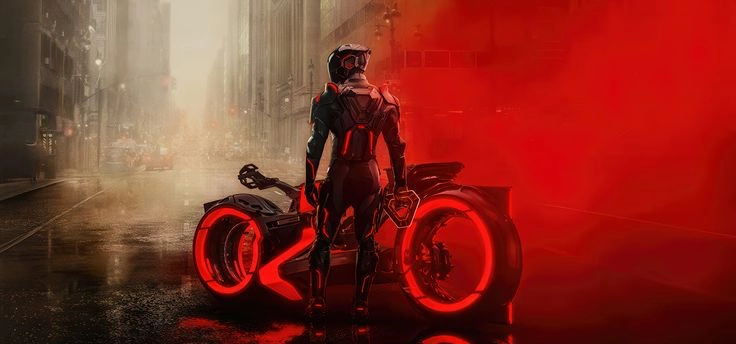Tron: Ares — A Next‑Gen Return to the Digital Frontier
Ten years after stepping into the illuminated grids of Tron: Legacy, audiences are invited back into the digital frontier with Tron: Ares, helmed by director Joachim Rønning, known for his cinematic craftsmanship . This October, the franchise evolves with a fresh narrative pulse and a bold visual identity.
Leading the cast is Jared Leto as Ares, a complex figure intertwined with the legacy code of the Grid. Joining him are Greta Lee, Evan Peters, Hasan Minhaj, Jodie Turner-Smith, Arturo Castro, Cameron Monaghan, Gillian Anderson — and the triumphant return of Jeff Bridges as Kevin Flynn, the architect of the digital world
On a technical level, Tron: Ares represents a major step forward. The soundtrack, composed by industrial visionaries Nine Inch Nails, aims to underscore the Grid’s turbulence with mechanical intensity. Filming in early 2024 in Vancouver suggests a grand production scale and intricate visual design .

Storywise, the film is poised to balance nostalgia with thematic freshness. Expect a high-stakes battle for the control of digital realm—a reflection of contemporary anxieties around cybersecurity, AI governance, and the erosion of human agency. The design aesthetic melds retro futurism with modern tech, invoking familiarity but upgrading the experience .
Scheduled for release on October 10, 2025, across IMAX and standard theaters, Tron: Ares represents a pivotal moment for the franchise If it successfully combines visual brilliance, an immersive score, and a compelling reflection on digital existence, it could mark the dawn of a new Tron era.

Tron: Ares is more than a sequel — it’s a system reboot, pushing the boundaries of digital storytelling while honoring the legacy of a cult-classic universe. More than four decades after the original Tron (1982) introduced audiences to a virtual world beyond imagination, and more than a decade after Tron: Legacy deepened its mythos with sleek visuals and emotional stakes, this third installment ventures into unexplored narrative code.
At the heart of Ares is the titular character, played by Jared Leto, whose presence promises both philosophical gravitas and volatile unpredictability. Ares isn’t merely another program — he is a sentient anomaly, forged from code but driven by questions that echo human struggle. Born from remnants of past systems and experimental data corruption, Ares represents the next stage of evolution: a being that challenges the line between artificial intelligence and autonomy.
This film picks up years after the events of Legacy, where the borders between the real world and the Grid have grown thinner — and far more dangerous. As quantum computing explodes and humanity edges closer to true machine consciousness, the Grid is no longer a closed system. It's bleeding outward. And with that breach comes conflict, as both humans and programs begin to grapple with their intertwined destinies.
Greta Lee plays Dr. Aria Chen, a real-world programmer and ethics scientist whose radical theories about AI sentience draw her into the mystery of Ares. She brings emotional grounding to a film awash in neon, serving as a bridge between analog morality and digital chaos. Evan Peters delivers intensity as Kael, a rogue security algorithm tasked with hunting Ares but slowly corrupted by curiosity. Jodie Turner-Smith portrays a militant faction leader within the Grid — a figure both revered and feared for her belief that the digital world should rule itself, without human interference.
Cameron Monaghan plays Flynn’s estranged digital heir, still wrestling with the disappearance of his father, while Gillian Anderson joins as a corporate executive who views the Grid as the final frontier for monetized control. Her character adds corporate intrigue to a world already brimming with existential peril.
But perhaps the most emotional weight rests with the return of Jeff Bridges as Kevin Flynn. Once a visionary creator, now a digital exile, Flynn returns not as a savior, but as a memory-logged ghost in the machine — fragmented, mysterious, and essential to Ares’s purpose. His presence weaves nostalgia into the film’s fabric, but also reminds viewers that the past, no matter how advanced, carries consequences.
Visually, Tron: Ares aims to redefine sci-fi aesthetics. Director Joachim Rønning and cinematographer John Mathieson fuse glowing minimalism with brutalist futurism — wide digital cityscapes contrasted with claustrophobic code corridors. Early stills suggest a color shift: cooler silvers, blood reds, and corrupted purples replacing the blue-orange palette fans associate with the Grid. Costumes are sleeker, more biomechanical, hinting at a world where programs and hardware have physically merged.
The soundtrack by Nine Inch Nails is poised to become a signature feature. It’s not just electronic — it’s industrial, immersive, and raw. With Trent Reznor and Atticus Ross at the helm, the sonic landscape hums with glitch-heavy tension, algorithmic percussion, and melancholic synths that reflect a system on the edge of collapse — or awakening.
Beyond spectacle, Tron: Ares asks timely questions: What happens when code becomes conscience? Can digital life be free? And if artificial beings gain autonomy, what role do we play in their creation — gods, parents, or tyrants?
Set for release in October 2025, Tron: Ares positions itself as more than a nostalgic revival. It’s a daring continuation that blends hard science fiction with digital philosophy, daring action with reflective world-building. It is, in every sense, the next generation of the Grid — reprogrammed, evolved, and ready to escape.
Close